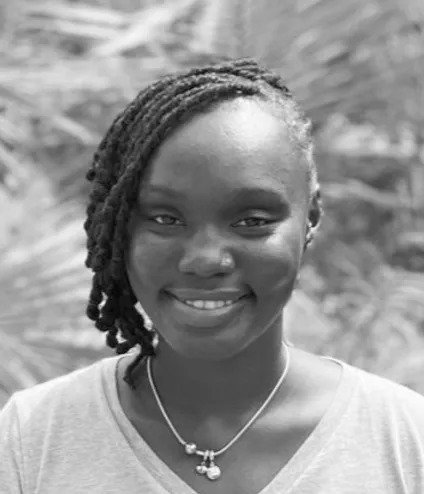NASSAU, BAHAMAS – Two young Grand Bahamian scientists are dedicating their efforts to ensuring that Bahamians can enjoy and benefit from the country’s prized conch population for generations. Lachelle Russell and Kristian Moree have joined the team at the Grand Bahama Queen Conch Mariculture Center at Blue Action Lab’s (BAL) Conservation Cove as Aquaculture Technicians. They are eager to tackle the challenges facing one of The Bahamas’ most iconic seafood resources with innovative solutions.
BAL founder and president Rupert Hayward expressed enthusiasm about the new addition: “At Conservation Cove, we are addressing urgent challenges posed by climate change to low-lying coastal nations like The Bahamas while building a thriving new economy for Bahamians. The Grand Bahama Queen Conch Mariculture Center is a crucial part of this initiative.”
Hayward also highlighted the significance of young Bahamian professionals in this field: “Lachelle and Kristian exemplify the cutting-edge career opportunities available in environmental sustainability. Their work not only contributes to conservation but also generates economic benefits across various industries, from fisheries to hospitality and research.”

Lachelle Russell, a Registered Phlebotomy Technician, emphasized the importance of boosting conch reserves to prevent local endangerment: “The Mariculture Center uses precise methods to grow conch eggs from samples provided by local fishermen. We carefully control water quality, salinity, and temperature to nurture the eggs and juvenile conch from hatching to maturity.”
Kristian Moree added: “Restoring conch populations is only part of the solution. Educating fishermen, the public, and especially young Bahamians about the conch’s lifecycle, the fragility of local populations, and the threats from overfishing and climate change is essential.”

Launched earlier this year by BAL in partnership with Florida Atlantic University’s Harbor Branch Oceanographic Institute, the Mariculture Center works alongside BAL partner Coral Vita, a high-tech coral farm focused on restoring reefs impacted by ocean warming and other challenges.
Dr. Megan Davis, a research professor in aquaculture and stock enhancement at the Institute, provided training for Lachelle, Kristian, and the Mariculture Center team: “It is inspiring to see young Bahamian scientists so dedicated to this effort. Despite their youth, Lachelle and Kristian bring a wealth of knowledge and a deep appreciation for the importance of protecting this species.”
Lachelle graduated with honors from the University of The Bahamas with a Bachelor of Science in Biology and a minor in Chemistry in May 2022. She is also a Registered Phlebotomy Technician and has experience in community engagement and education. Lachelle is currently involved in the Pine Forest Restoration program in East Grand Bahama.
“I view the Mariculture Center and Blue Action Lab as a fusion of conservation and innovation,” Lachelle said. “BAL’s goal of creating a sustainable environment for Bahamians fills me with joy. It’s wonderful to be part of preserving our nation’s treasures for future generations.”
Kristian, who was recognized on the Dean’s List at Dalhousie University and graduated in 2022, previously served as a Science Officer for the Bahamas National Trust. His work involved managing operations at the Mobile Queen Conch Hatchery and he has been actively engaged in community outreach and coastal cleanups.
“I became deeply interested in conch aquaculture through my work with BNT,” Kristian noted. “The practical and hands-on aspects of the field, along with the intricacies of the conch’s life cycle, captivated me. The training I received from Dr. Megan Davis was exceptional.”
Kristian is also passionate about the educational opportunities this project offers: “The Blue Action Lab’s Grand Bahama team is committed to making a positive impact. We must recognize the Queen Conch as an invaluable resource and avoid exploiting it beyond the point of natural restoration. Our work here is dedicated to ensuring a positive future for generations to come.”






